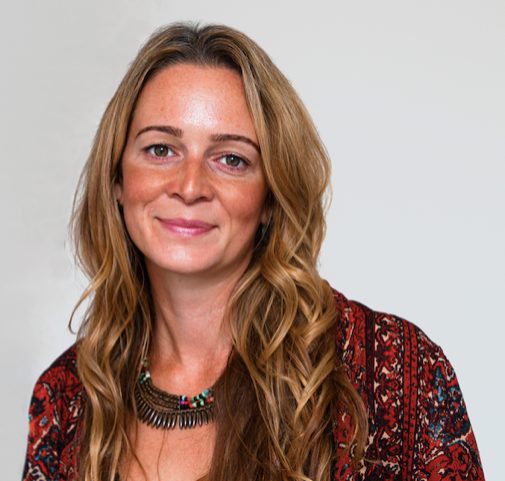Many of us wait for the perfect idea or until we feel ready to start a business, but that’s not how starting a successful business works; those moments never come.
And often, when we start a business, we get so wrapped up in the operations that we forget why we started it in the first place; we think if we feel busy, that equates to success, but the reason we started the business was not to be busy, but for freedom of time, money and creative thinking, it was to create a change.
These 5–20-minute TED Talks remind us to step back and help us recognise that the assumptions we hold about what makes a successful business will not necessarily be true. Take time out from operations for inspiration — it’s an integral part of your work too.
1. Margaret Heffernan: Dare to Disagree (12 minutes)
Entrepreneur Margaret Heffernan is famous for her motto, ‘Let’s not play the game; let’s change it.’ In this TED Talk she answers her own question, ‘how do organisations think?… Well, for the most part, they don’t.’
She goes on to explain that it ‘isn’t because they don’t want to. It’s really because they can’t, and they can’t because the people inside of them are too afraid of conflict.’
Most people instinctively avoid conflict, but as Margaret demonstrates, disagreement is essential to creating a thinking organisation and a thinking society.
‘It requires that we find people who are very different from ourselves. That means we have to resist the neurobiological drive, which means that we prefer people mostly like ourselves. It means we have to seek out people with different backgrounds, disciplines, ways of thinking and experience and find ways to engage with them.’
Conflict and disagreement are thinking and, when done right, can be a fantastic model of collaboration. We need thinking partners who aren’t echo chambers, and we must be prepared to change our minds.
2. Bill Gross: The Single Biggest Reason Why Startups Succeed (6 minutes)
Bill Gross has been starting businesses since he was at school and founded Idealab, which is an incubator that (at the time of the Ted Talk) had launched 100 companies in 20 years, many of which have gone on to be extremely successful and some which have been big failures.
In this Ted Talk, Bill talks about what he has learnt from those successes and failures and explores the factors that matter most for startup success.
He does this by looking at the 100 Idealab companies as well as 100 non-Idealab companies comparing the successful likes of Airbnb and LinkedIn with the failures of pets.com and Friendster. Bill identifies five factors and assesses which is the most important to help give you a slightly higher success ratio: the idea, team, business model, funding, and timing.
Spoiler alert: Bill says it’s the timing matters the most. Are consumers ready for what you have to offer them?
3. Angela Lee Duckworth: The Key to Success? Grit (4 minutes)
Angela Lee Duckworth went from a career as a management consultant to a teacher to being a psychologist and studied the types of people who became successful and why. One characteristic emerged as a predictor of success: grit.
‘Grit is passion and perseverance for very long-term goals. Grit is having stamina. Grit is sticking with your future, day in, day out, not just for the week, not just for the month, but for years, and working really hard to make that future a reality. Grit is living life like it’s a marathon, not a sprint.’
4. Harish Manwani: Profit’s Not Always the Point (7 minutes)
The COO of Unilever, Harish Manwani, says that we must all move to an ‘and/and’ business model of how we make money and do good. Companies that will thrive will create economic and social value by acting responsibly and contributing to the communities that sustain them.
‘You need businesses that can actually define the role, society, in terms of a much larger purpose than the products and brands that they sell.’
5. Adam Grant: The Surprising Habits of Original Thinkers (15 minutes)
Watch Adam Grant’s talk to discover the difference between idea doubt and self-doubt and what your internet browser says about you.
He has studied people he calls ‘originals’ who are nonconformists, who not only have new ideas but take action to champion them driving creativity and change. He discovered that these people don’t always have the characteristics you think they might. Contrary to popular belief, originals are not immune to feeling fear or doubt but handle it differently realising the value in testing and failing. Often they are moderate procrastinators knowing that you don’t need to move first or quickly, just be different and better.
‘It’s much easier to improve on somebody else’s idea than it is to create something new from scratch.’
6. David Brooks: Should You Live for Your Resume or Your Eulogy? (5 minutes)
What is more important the virtues that go on your resume or the virtues that go on your eulogy? Most of us would say the eulogy virtues but where do we spend most of our thought and time? — usually on the resume virtues.
“The resume virtues are the ones you put on your resume to bring to the marketplace. The eulogy virtues are deeper. Who are you in depth? What is the nature of your relationships? Are you bold, loving, dependable, consistent?”
David Brooks talks about how we can balance the two and work on our weaknesses and strengths.














